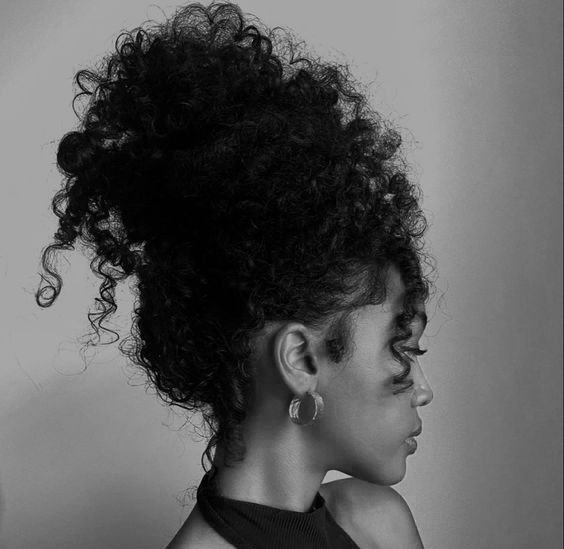
Scalp oils inhibit curl health
Share
Contrary to perceived wisdom in the curly hair space, oiling your scalp - versus oiling your curly strands - is damaging your hair. Hear from our founder:

“I wish I’d never ever oiled my scalp. The amount of times I would pour castor oil onto my scalp, absolutely certain I was doing some sort of treatment, doesn't bear thinking about. When in fact I was blocking the sebum (scroll down to read about sebum), playing havoc with the pH of my scalp and keeping moisture out. But there was no telling me. It took until I had severe seborrheic dermatitis and did extensive research before I understood that oiling my scalp was not going to yield growth or health for that matter.” - Tammy
Let’s discuss
There are myriad products on the market which claim oiling the scalp combats hair loss and yields growth and healthy hair. This is a marketing ploy. When we are in homeostasis, our natural state, every process in our bodies works. Hair growth is a process, along with a healthy scalp. Our bodies are always in, or trying to reach a state of homeostasis.
Things that affect homeostasis: stress, fatigue, dieting, over-exercising, infections. We are exposed to any of these things at any given time. Products therefore rarely affect this.
Rather, products support our hair ie: detangle it, inject moisture where needed, and offer curl definition.

Wait, but what if I LIKE oiling my scalp, or just using oil anyway?
We have a hair oil, so we know, it's a lovely feeling, but our's is a hair oil, not for the scalp because research shows applying oil and leaving it on the scalp is not helpful for growth, or healing or addressing scalp issues. When oil is applied to strands however, it gives the most darling slip, scrunches out the crunch, adds exceptional shine, and ours has been recently reformulated, too.
What should I use instead of oil?
Oils are not a requirement for scalp health. If you are set on your routine of scalp massages wash the oil out afterwards to ensure the pH levels on your scalp rebalance. Our hair conditioners and oil are nourishing enough for your hair - where you should be applying product.

A note on sebum:
It is a defence mechanism. Sebum - a mix of squalane, oil and skin cells - is produced to protect us against bacteria. The oily substance that is then produced - sebum - protects our curls from microbes and whatever else is floating around in the air. How clever.
Sebum levels and balance can change when we’re stressed, it triggers a high production of cell turnover, that become visible (flakes). In women estrogen changes that take place every month around ovulation can affect sebum levels too, meaning your hair and scalp may feel drier than usual. But this passes once you enter the luteal phase before your period.
A note on thick oils
Any viscous oil applied directly to the scalp does nothing but clog it. It feels soft and ‘nice’ because it is a slippery (oleic) oil. The oils high in oleic acid are naturally heavy and moisturising, but they do not make your hair grow when applied to the scalp and can in fact inhibit growth because it blocks sebum. Oils like Castor and olive oil work best when mixed in small quantities with water, like our leave-in conditioners Ten and Ten pro.
Mercifully all of this can be avoided with our 100% organic hair cleanser. Nine ingredients clean curls, but mostly, cleans your scalp without stripping curls of their natural oil - sebum - but still washing each tendril.
Further reading: